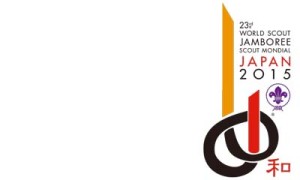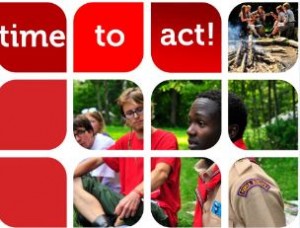 Ce este o jamboree?
Ce este o jamboree?
O data la patru ani, zeci de mii de Cercetasi din toate colturile lumii, se aduna intr-un oras Scout, pentru doua saptamani de activitati si aventura! Acesta este un eveniment fantastic, unde pana la 40.000 de Cercetasi locuiesc, invata si se distreaza impreuna.
Acesta este in primul rand o unica experienta de multiculturalism in actiune, o ocazie de a interactiona si participa cu alti cercetasi din diferite culturi si pentru a fi solidari si a depasi limitele culturale si geografice. Asta inseamna o Jamboree Mondiala!
Locatia
Kirara-hama, Yamaguchi City,
Yamaguchi Prefecture, Japan.
Date
Jamboreea va avea loc începand cu data de 28 Iulie 2015 până în 8 August 2015.
Mai exact:
25 Iulie 2015 sosire IST
28 Iulie 2015 sosire Participanti
8 August 2015 plecare Participanti
9 August 2015 plecare IST
Cine poate participa?
Toti cei care participa la Jamboreea Mondiala trebuie sa fie membri activi ai Organizatiei Nationale ”Cercetasii Romaniei” si sa indeplineasca urmatoarele criterii:
• cotizatia platita la zi
• activ in ultimele 6 luni
• vechime in ONCR de minim un an
• cunostinte engleza – nivel mediu – vorbire
• participare la cel putin un camp national
Pentru a fi participant la cea de-a 23-a Jamboree Mondiala din Japonia 2015, trebuie sa ai intre 14 ani (impliniti) si 18 (neimpliniti la inceputul campului), mai exact trebuie sa fii născut intre 9 august 1997 si 28 iulie 2001. Fiecare cercetas are o singura ocazie sa fie participant la o Jamboree Mondiala. Daca te incadrezi in aceasta grupa de varsta, e sansa ta!
Inscrieri
Pentru inscriere trebuie sa trimiti un e-mail la wsj@scout.ro si sa atasezi:
– CV-ul cercetasesc (format europass, in care sa mentionezi si centrul local din care faci parte);
– o scrisoare de motivatie de aproximativ 200 de cuvinte, in engleza, din care sa reiasa motivatia ta de a participa la Jamboreea Mondiala din Japonia;
– acordul sefului de centru
Transport
Cel mai apropiat aeroport de locatia Jamboreei este aeroportul din Fukuoka, si costa undeva in jurul sumei de 1000 euro dus-intors.
Data limita pentru inscrierea membrilor IST, liderilor de grup si candidatilor pentru postul de sef de contingent este 1 august 2014.
In perioada dintre finalizarea inscrierilor si Jamboreea propriu-zisa, vor avea loc intalniri ale contingentului pentru a pregati reprezentarea Romaniei si a cercetasiei din Romania, ale caror date vor fi anuntate din timp.
Taxa de participare
Taxa de participare este unica pentru participanti si IST si include urmatoarele:
• Program
• Campare
• Masa
• Materiale de contingent
Costul total de participare la jamboree va fi de aproximativ 2000 euro.Costurile exprimate mai jos sunt estimative si pot varia putin.
Acesti bani se impart in:
– valoarea taxei de participare care este de 550 euro
– costurile suplimentare estimate la aproximativ 1350 euro
– transport: aprox 1000 euro
– bani minimi de cheltuiala: 300 euro
– cost intalniri de contingent si materiale de contingent(esarfa, badge, tricou): 150 euro
Pentru orice intrebari si nelamuriri trimiteti un mail la : ioana.frincu@scout.ro (SUBIECT: INFO 23WSJ)
Mai multe informatii puteti gasi pe site-ul oficial al jamboreei: www.23wsj.jp .





